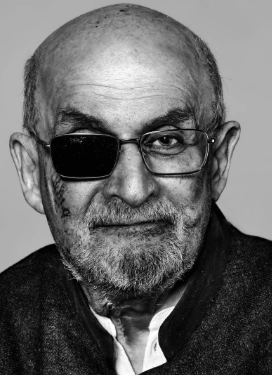Saturday, February 11, 2023
Salman Rushdie's FURY
Saturday, January 14, 2023
Goodby Breakfast with Konrad
Konrad has been visiting Big Frank for the past month or so. All good things come to and end and so Konrad is heading back to Krakow tomorrow. It's been wonderful having my son with me for such a long time. Big Frank is a lucky father to have such a loving, considerate, and eminently responsible son. He is a great father, loving husband, and makes his dad proud.
We went to the City Diner, located in the River Market part of Kansas City. It's right down the street from the loft where Big Frank lived prior to his moving out into the suburbs of Parkville.
Monday, January 9, 2023
FALLING
Big Frank toppled recently. He woke early in the morning and went to take a leak. The next thing he remembers is he is on the floor. This is the first time in his life that he fainted and he is lucky that his injuries were minor: some scrapes and a soar neck. However, the task now is to discover what took him down and he is on that like stink on a monkey and will see his doc tomorrow for his opinion as well, of course.
Today's posting is to inform the rest of you just how prevalent and dangerous such falls are in the U.S. According to the CDC: "in 2014, 28.7% of older adults reported falling at least once in the preceding 12 months, resulting in an estimated 29.0 million falls. Of those who fell, 37.5% reported at least one fall that required medical treatment or restricted their activity for at least 1 day, resulting in an estimated 7.0 million fall injuries." Furthermore: "Falls are the leading cause of fatal and nonfatal injuries among adults aged ≥65 years (older adults). During 2014, approximately 27,000 older adults died because of falls; 2.8 million were treated in emergency departments for fall-related injuries, and approximately 800,000 of these patients were subsequently hospitalized." In fact "Falls are the leading cause of fatal and nonfatal injuries among persons aged ≥65 years (older adults)." All of this information and quotes is taken from the CDC.
It turns out that there is a particular kind of fainting that appears to cover Big Frank's fall. It is called micturition (or post-micturition) syncope. This is fainting while urinating or immediately after urinating. It is thought to be due to a severe drop in blood pressure. Micturition syncope is common in older men like Big Frank and usually happens when getting up at night from a deep sleep, which is exactly what happened.
Friday, January 6, 2023
Alexander Anthony
Thursday, December 8, 2022
The Benevolents
The Benevolents (click link to view) came out in 2021 under French title ''Les bienveillants' and was directed by Sarah Baril Gaudet. In the film the viewer goes into Tel-Aide Montreal call center. We follow a group of volunteers in training. The key to their important work is learning how to listen, "the importance of vigilent ears in a society of loneliness."
The volunteers listen to callers, lonely, desperate people calling to talk. They let the callers talk and through comments and questions affirm that they are there listening and that they HEAR what the caller says. They are the ears in the darkness that affirm the callers humanity and allow them to name their pain. We all could benefit from this training. The rare often lost art of listening is so life affirming.
This film is part of a series of short documentaries by independent filmmakers available through the New York Times online. These include a spectrum of films from emerging directors to Oscar winners from around the world.
Thursday, October 20, 2022
"In the Distance" by Hernán Diaz
Håkan is a huge guy when he arrives and then throughout the novel he keeps growing. He always stands out - first because of his hugeness and secondly because of his limited English, which is compounded by his shyness. He tries to avoid problems/trouble, but cannot. As he travels ever eastward Håkan meets a strange assortment of frontier folks: a crazy Irish gold prospector, a woman with no teeth who keeps him as her plaything, a naturalist seeking life's secrets, a sadistic sheriff and amoral civil war soldiers.
In the end our hero is driven to hiding in the wilderness, living in dugout dirt homes, and trapping and foraging for food. Years pass in this manner and Håkan loses himself in the rhythm of fixing his tunnel/house, trapping, picking wild plants, cooking, and doing all the previous over and over again.
What it is!













